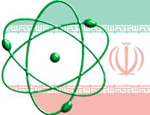 Reuters: Following are some details of the sanctions imposed on Iran by the United States, European Union and United Nations:
Reuters: Following are some details of the sanctions imposed on Iran by the United States, European Union and United Nations:
 (Reuters) – A U.N. sanctions draft resolution against Iran has no legitimacy, the semi-official Fars news agency quoted a close ally of Iranian President Mahmoud Ahmadinejad as saying on Wednesday.
(Reuters) – A U.N. sanctions draft resolution against Iran has no legitimacy, the semi-official Fars news agency quoted a close ally of Iranian President Mahmoud Ahmadinejad as saying on Wednesday.
Earlier this week a deal was brokered by Brazil and Turkey in which Iran agreed to send some enriched uranium abroad in return for fuel rods for a medical research reactor. U.S. officials regard that deal as a maneuver by Iran to delay more U.N. sanctions.
Following are some details of the sanctions imposed on Iran by the United States, European Union and United Nations:
* U.S. SANCTIONS:
— Sanctions imposed after Iranian students stormed the U.S. embassy and took diplomats hostage in 1979 included a ban on most U.S.-Iran trade.
— Goods or services from Iran cannot be imported into the United States, either directly or through third countries, with the following exceptions: gifts valued at $100 or less; information or informational materials; foodstuffs intended for human consumption; certain carpets and other textile floor coverings and carpets used as wall hangings.
— In 1995, President Bill Clinton issued executive orders preventing U.S. companies from investing in Iranian oil and gas and trading with Iran. Tehran has looked for other customers.
— Also in 1995, Congress passed a law requiring the U.S. government to impose sanctions on foreign firms investing more than $20 million a year in Iran’s energy sector. It was extended for five years in September 2006. No foreign firms have yet been penalized, though many have severely curtailed their operations in Iran.
— In October 2007 Washington imposed sanctions on Bank Melli, Bank Mellat and Bank Saderat and branded the Revolutionary Guards a proliferator of weapons of mass destruction. Two years later, in October 2009, the Treasury also sanctioned Bank Mellat in Malaysia and its chairman.
— Companies worldwide that supply gasoline to Iran would be largely prevented from doing business with the United States under bills that have recently passed the U.S. Senate and House of Representatives. Negotiators must combine the bills into one if Congress is to pass the measure and send it to President Barack Obama for signing into law.
— U.S. sanctions against Iran can be found on the Treasury Department’s Office of Foreign Assets Control website: here
* U.N. SANCTIONS:
— The Security Council has imposed three sets of sanctions on Iran, in December 2006, March 2007 and March 2008.
— The first covered sensitive nuclear materials and froze the assets of Iranian individuals and companies linked with the nuclear program. It gave Iran 60 days to suspend uranium enrichment, a deadline Iran ignored.
— The second included new arms and financial sanctions. It extended an asset freeze to 28 more groups, companies and individuals engaged in or supporting sensitive nuclear work or development of ballistic missiles, including the state-run Bank Sepah and firms controlled by the Revolutionary Guards.
— The resolution invoked Chapter 7, Article 41 of the U.N. Charter, making most of its provisions mandatory but excluding military action. Iran again ignored an order to halt enrichment.
— The third measure increased travel and financial curbs on individuals and companies and made some of them mandatory. It expanded a partial ban on trade in items with both civilian and military uses to cover sales of all such technology to Iran, and added 13 individuals and 12 companies to the list of those suspected of aiding Iran’s nuclear and missile programs. In September 2008, the Security Council unanimously adopted a resolution again ordering Iran to halt enrichment, but has not imposed more sanctions due to opposition from Russia and China.
— In March 2010, the U.S. agreed with Britain, France and Germany on a draft proposal for a fourth round of sanctions and circulated it to Russia and China for comments.
— On Tuesday the U.N. Security Council was handed a draft resolution to expand U.N. sanctions against Iran. The sanctions will hit its banking sector and will expand the existing arms embargo to include more types of heavy weapons. The new sanctions also call for international inspection of ships suspected of carrying cargo related to Iran’s nuclear program.
* EU SANCTIONS:
— The EU has imposed visa bans on senior officials such as Revolutionary Guards head Mohammad Ali Jafari, former Defense Minister Mostafa Mohammad Najjar and former atomic energy chief Gholamreza Aghazadeh, and on top nuclear and ballistic experts.
— Britain said on June 18, 2009 that Iranian assets frozen in Britain under EU and U.N. sanctions totaled 976 million pounds ($1.4 billion).
— Britain announced on October 12 it was freezing business ties with Bank Mellat and Islamic Republic of Iran Shipping Lines, both of which have previously faced sanctions from the United States. Britain cited fears they were involved in helping Iran develop nuclear weapons. (Writing by David Cutler, London Editorial Reference Unit)


